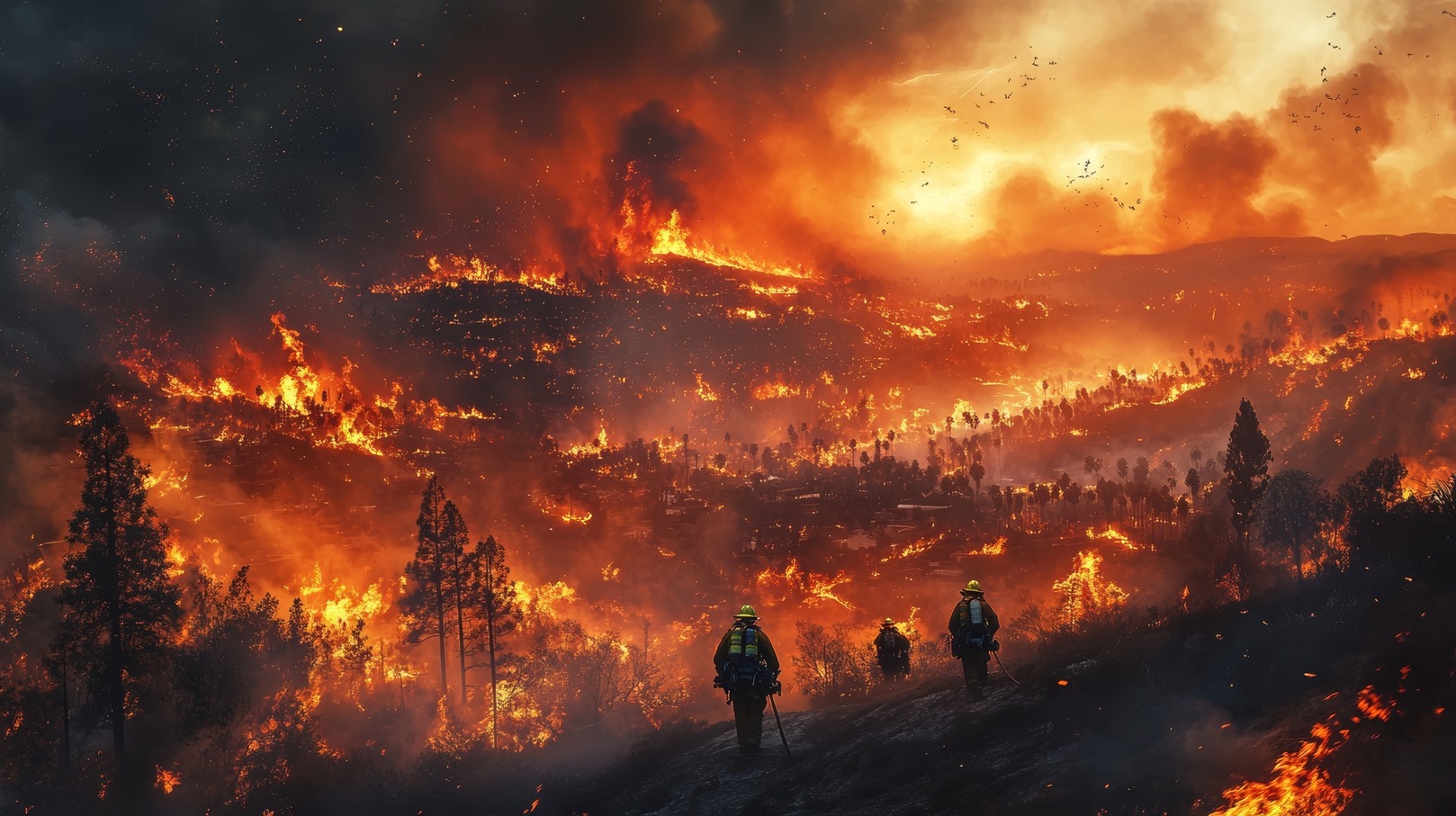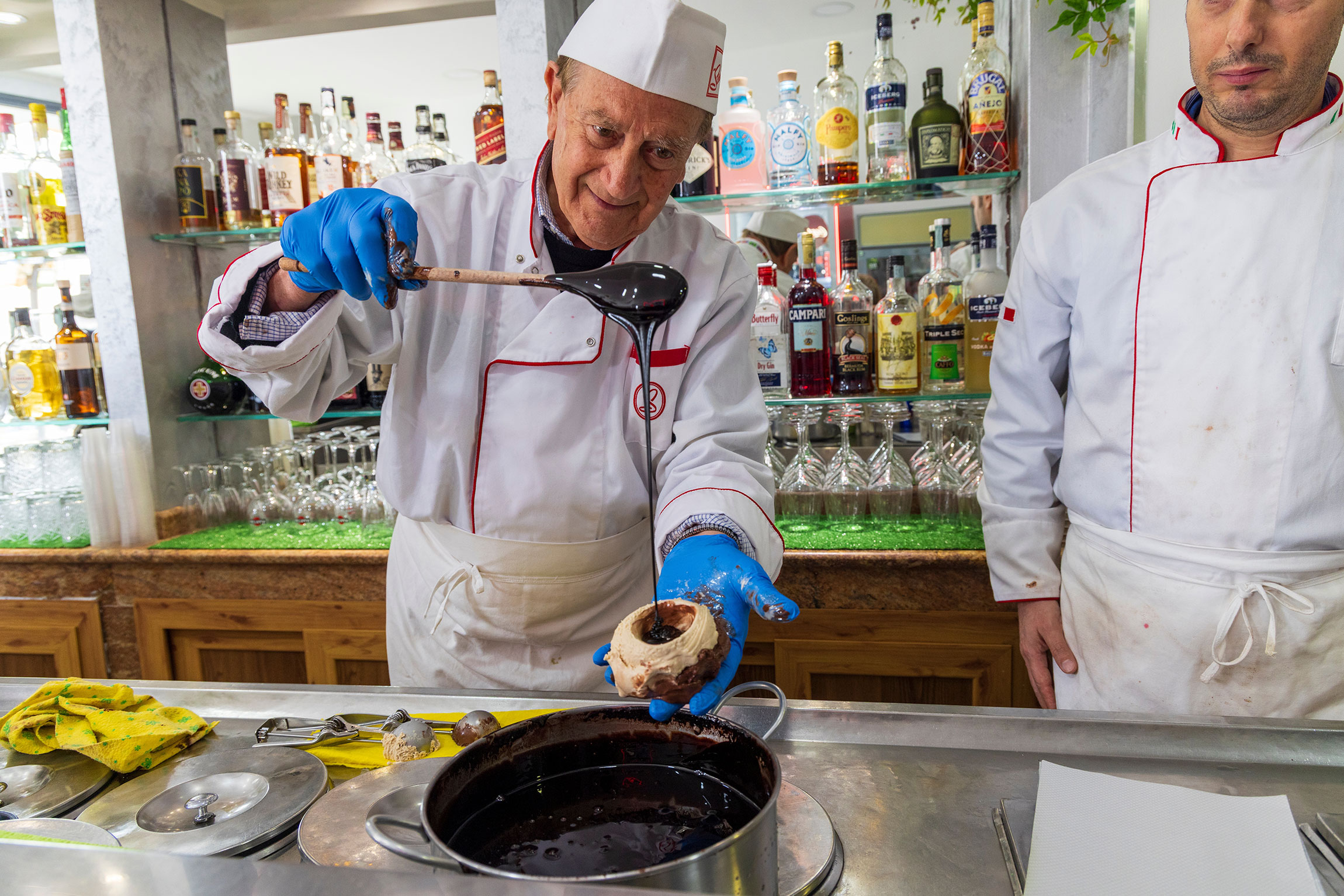An unprecedented disaster, a collective mourning, a warzone in peacetime. Los Angeles wakes up traumatized by the devastation of wildfires. Even those who watched the inferno from a distance—safe but not untouched—will carry the image of towering flames on the horizon, columns of smoke darkening the sky, ash blanketing everything like snow, and the acrid smell that even the ocean cannot wash away. For many, reckoning with the aftermath of this historic and costly disaster will not be a simple task.
The firenadoes that consumed everything in their path tell a harrowing tale. They reveal years of neglect, inefficiencies, environmental mismanagement, and the consequences of speculative policies. Yet beyond these failures lies the deeper emotional toll, an intimate devastation that thousands must now face.
L’Italo Americano is not immune to the challenges, especially given the destruction in Altadena.These are difficult times and the newspaper’s operations have been partially disrupted.To our readers, we ask for patience: despite our commitment to fulfilling all subscription deliveries, some delays or disruptions may occur. Like so many others, we are adjusting to an altered reality—where even physical landmarks we once relied upon are now gone. Familiar routines have vanished, and each day brings its own set of difficulties.
Walking the streets, now reduced to ashes, is emotionally exhausting. Every morning, we meet people who have lost everything—families searching for a new home among thousands of others with the same urgency. Volunteers selflessly dedicating their time, and individuals forced to confront the unimaginable loss of their belongings and stability. Many must carry on as if nothing has changed—returning to school, university, or work to preserve their education, jobs, or a thread of normalcy in this chaotic chapter of history.
Reorganizing, rethinking, starting over. Finding a way forward is anything but easy. No one knows for sure where to go, how to rise again, or how to reinvent themselves—especially when all they’ve managed to save is a car or two hastily packed suitcases.
The firestorm that swept through Los Angeles, consuming vast areas, has left devastation on an unimaginable scale. Flames engulfed homes, shopping centers, landmarks, and beloved spaces—places of connection, work, and leisure—leaving behind not just ashes but an enduring sense of fear. It’s a shadow that will linger in our minds, reshaping our priorities and reminding us of vulnerability. For many, this image will be impossible to erase, fading only with time—or in the face of an even greater calamity.
It brings to mind the devastating earthquake of 1906 that reduced San Francisco to rubble. Fires ravaged the city, three thousand people died, and entire lives were upended. Yet, out of the ashes, the city found its footing, and the Italian-American community, through determination and hard work, slowly rebuilt their lives. The pivotal role of Amedeo P. Giannini, a visionary banker and future founder of Bank of America, is often cited in this recovery. But today, we must also focus on curbing opportunistic speculation and envisioning a long-term, mutualistic approach to rebuilding.
L’Italo Americano stands in solidarity with the Italian-American community and all the residents of Los Angeles. We are with you, holding you in our hearts as you face this shocking, traumatic, and unimaginable experience that has stripped away pieces of our history, our city, our neighborhoods, and our daily lives. We stand by those who have lost their homes and everything “home” represents. We are here for those dealing with uncertainty and the fear of not making it through these anguished hours, offering support and encouragement. Together, we will face this tragedy and rebuild.
Un disastro senza precedenti, un lutto da elaborare, uno scenario di guerra in tempo di pace. Los Angeles si è svegliata traumatizzata dagli incendi. Anche chi lo ha osservato da lontano, protetto dalla distanza, quel fuoco enorme sull’orizzonte, con le colonne di fumo, polveri e ceneri ovunque, l’odore acre e pungente che persino l’oceano fatica ad assorbire, se lo porterà dentro per anni. Per tanti non sarà cosa da poco fare i conti con quel che resta del disastro più costoso della storia degli Stati Uniti.
I firenado, che hanno mangiato tutto quello che hanno incontrato sulla loro strada, raccontano tante storie. Sono accuse e carenze, sono inefficienze e anni di incurie, speculazioni e cattive politiche, sono problemi climatici e ambientali, ma soprattutto sono devastazioni emotive con cui tantissime persone dovranno imparare a fare i conti.
L’Italo Americano sta vivendo non pochi disagi, soprattutto per la distruzione che ha colpito Altadena. Stiamo attraversando momenti complicati. La logistica del giornale è in parte compromessa e per questo cari lettori vi chiediamo, nonostante la nostra intenzione di assicurare puntualmente tutte le uscite previste dagli abbonamenti, di pazientare se riscontrerete qualche ritardo o disguido. Come per migliaia di persone, i problemi operativi sono dietro l’angolo, soprattutto perché talvolta l’angolo che, fisicamente, è sempre stato lì, oggi non c’è più. Tutti i punti di riferimenti stanno cambiando, le routine non ci sono più e ogni giorno presenta le sue difficoltà.
Camminare per le strade, desolatamente ridotte in cenere, è emotivamente faticoso. Incontriamo ogni mattina persone che hanno perso tutto, persone che cercano una nuova casa insieme a migliaia di altre famiglie con la stessa urgenza, persone che disinteressatamente mettono il loro tempo a disposizione, persone che mai avrebbero immaginato di non avere più nulla improvvisamente, persone che non sanno come fare ma devono tornare a scuola, all’università, al lavoro, in ufficio come se niente fosse per non perdere l’anno di studi, lo stipendio, l’unica cosa che resta, l’unica cosa che sembra normale dentro una piega impazzita della storia. Riorganizzarsi, ripensarsi, ricominciare. Trovare una soluzione è tutt’altro che facile. Anche perché nessuno sa con certezza dove andare, come fare a rialzarsi, in che modo reinventarsi, quando magari hai salvato solo un’auto o due valige fatte in gran fretta.
L’inferno di fuoco che ha distrutto intere porzioni di Los Angeles ha proporzioni sconvolgenti e le ceneri lasciate dalle fiamme che hanno divorato abitazioni, centri commerciali, monumenti e i nostri luoghi del cuore, i nostri spazi di vita, di socialità, di lavoro, di incontro e svago è una paura che è entrata nelle nostre teste. E’ come una sentinella che ci accompagnerà, vigile e ansiosa, per un tempo indefinito riprogrammando le nostre priorità. E’ un’immagine che tanti non riusciranno facilmente a cancellare e sbiadirà solo tra 50 anni o davanti a uno sconvolgimento più grande.
E’ stato così anche per il terribile terremoto che devastò San Francisco nel 1906. Venne giù tutto, bruciò la città, tutti persero tutto e ci furono più di tremila vittime. La città però seppe rialzarsi, la stessa comunità italoamericana riuscì poco alla volta a rinascere, rimboccandosi le maniche, riconquistando giorno dopo giorno un pizzico di fiducia e orgoglio. Si cita sempre il contributo e la visione rivoluzionaria che allora ebbe il banchiere Amedeo P. Giannini, futuro fondatore della Bank of America, ma oggi occorrerebbe anche frenare le speculazioni e immaginare una visione mutualistica sul lungo termine.
L’Italo Americano è solidale con la comunità italo-americana e gli abitanti di Los Angeles. Siamo con voi, con il cuore in mano di fronte a questa incredibile, choccante, traumatica e impensabile esperienza che ha portato via pezzi della nostra storia, della nostra città, dei nostri quartieri e della nostra quotidianità. Siamo accanto a chi ha perso la casa e tutto quello che significa casa, e siamo vicini a chi sta vivendo l’incertezza e la paura di non farcela in queste ore angoscianti, per supportarvi e incoraggiarvi. Affronteremo insieme questa tragedia e ci riprenderemo.






























